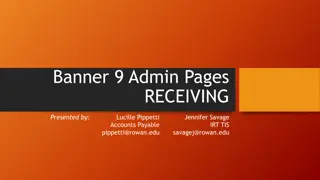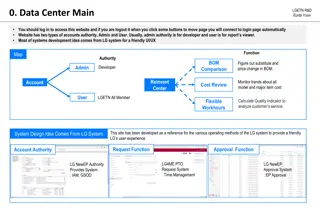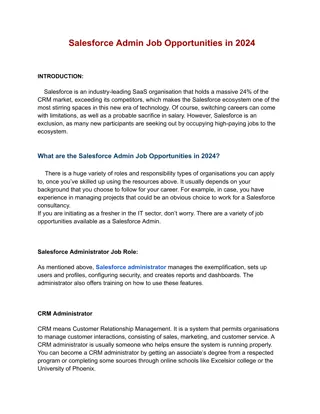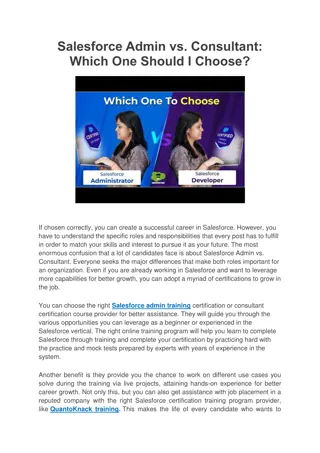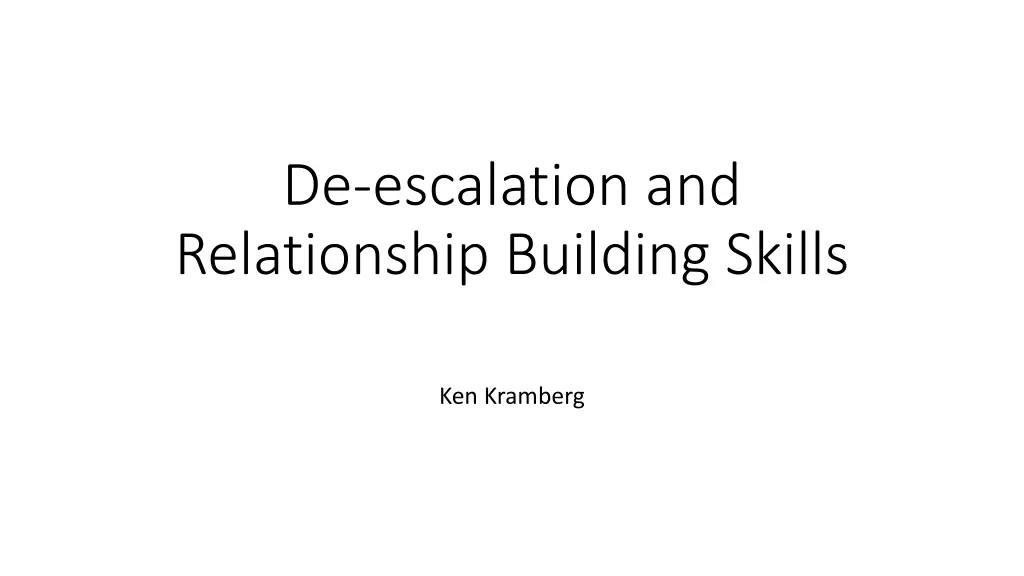
Effective Strategies for De-escalation and Relationship Building in Challenging Situations
Explore techniques such as acknowledging feelings, affirming perspectives, and setting limits to manage emotionally charged events effectively. Learn how to prioritize emotions before addressing behavior and foster better communication with children through active listening and offering choices.
Download Presentation

Please find below an Image/Link to download the presentation.
The content on the website is provided AS IS for your information and personal use only. It may not be sold, licensed, or shared on other websites without obtaining consent from the author. If you encounter any issues during the download, it is possible that the publisher has removed the file from their server.
You are allowed to download the files provided on this website for personal or commercial use, subject to the condition that they are used lawfully. All files are the property of their respective owners.
The content on the website is provided AS IS for your information and personal use only. It may not be sold, licensed, or shared on other websites without obtaining consent from the author.
E N D
Presentation Transcript
De-escalation and Relationship Building Skills Ken Kramberg
The Power Of Language Self Defeating Vs. Bad Behavior
CHILDREN WHO ARE HEARD LISTEN Kids want to tell their story
WHEN DEALING WITH IN AN EMOTIONALLY CHARGED EVENT YOU MUST DEAL WITH THE FEELINGS FIRST BEFORE YOU CAN DEAL WITH THE BEHAVIOR FEELINGS , THOUGHTS , BEHAVIOR
Remember, during crisis act like a thermostat, not like a thermometer!
1 DRAIN OFF Drain off the student s intense emotions by acknowledging the feelings 2 TIMELINE Use affirming and listening skills to discover the student s point of view 3 CENTRAL ISSUE Identify the student s vital interest and give them their choices
THE SCRIPT Acknowledge the feelings: Make 2-3 validating statements Affirm : Make 2-3 affirming statements Get the child s perspective and restate Set limits and give choices as needed









